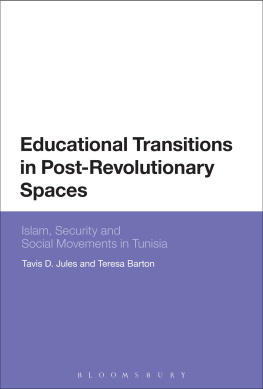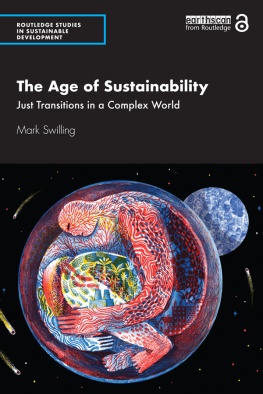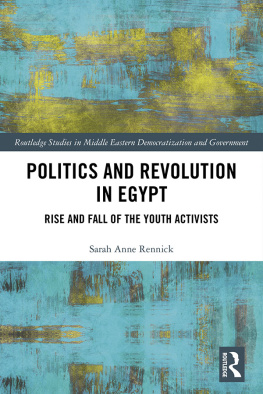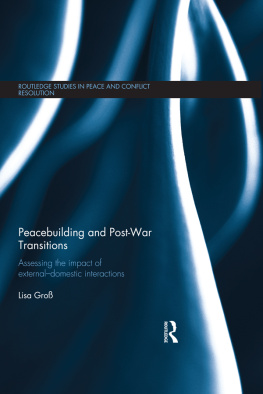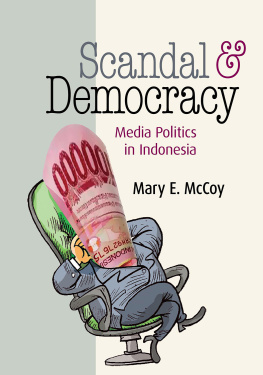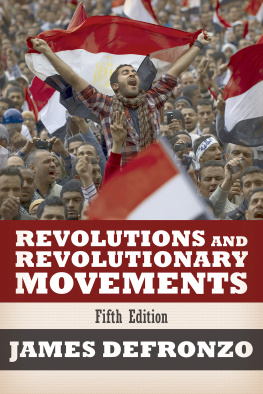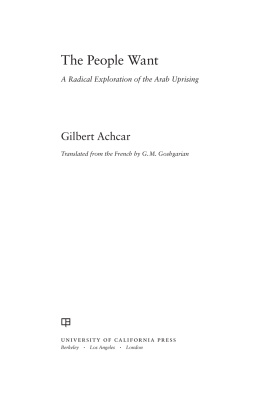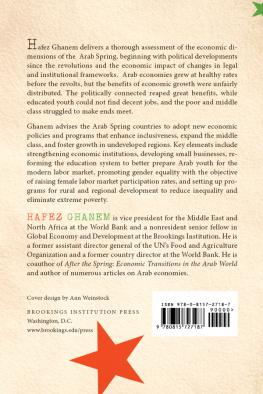
Educational Transitions in Post-Revolutionary Spaces
Also available from Bloomsbury
Citizenship Education in Conflict-Affected Areas, Bassel Akar
Conflict, Education and Peace in Nepal, Tejendra Pherali
Education in the Arab World, edited by Serra Kirdar

Contents
Tables
Tunisias demographic indicators at a glance
Comparison of the old Tunisian Diplomas and Anglo-Saxon Diplomas
Countries with the most/fewest ISIS fighters as a percentage of Muslim population
Diwans and their functions
Figures
Youth unemployment rate by educational level in Tunisia (2007)
Planned strategies for the education sector 20162020
This five-year research project was made possible with several grants and assistance from several individuals and institutions. Dr. Jules is particularly appreciative to Professor Peter Schraeder, who introduced him to Tunisia in 2011 and is grateful for the initial funding under the Tunisian Research Fellowship. The Office of the Provost at Loyola University Chicago provided the second round of funding for this research under the Stimulating Multidisciplinary Research at Loyolas Lakeside Campuses.
Dr. Jules is beholden to the Office of Research Services (ORS) at Loyola University Chicago who funded several research and data collection trips to Tunisia. Special thanks to Tracy Foxworth who has worked tirelessly during the past five years in ensuring that my numerous requests were taken care of in a timely manner. Le Centre dEtudes Maghrbines Tunis (CEMAT), in particular Laryssa Chomiak, has been instrumental in securing early access to research sites and taking the time to sit with several research assistants and Dr. Jules on several occasions to provide in-depth contextual information that was invaluable in assisting our team in understanding the Tunisian context. Colleagues at Universit de la Manouba, Faculty of Letters, particularly Professor Mounir Khelifa, provided invaluable assistance during the early days of this research project and Dr. Jules is appreciative for their collaboration. Dr. Jules is indebted to the various Deans at the School of Education, Loyola University Chicago, who have been instrumental in supporting this research during the last five years.
Several research assistants in Tunisia were instrumental in collecting, transcribing, and translating archival and interview data as well as providing research support; we are particularly beholden to Yosra Chatti, Chari Souhir, and Yosr El Benna. We are grateful to Dina S. Paulson for her editorial support.
We are grateful for the several graduate students at Loyola University Chicago, Landis Fryer, Devin Moss, Briellen Griffin, and Michel Mesterharm, who have contributed time, research support, and editorial assistance to this project.
Finally, Dr. Jules is grateful to his friends who have been supportive, Hakim M. A. Williams, Lara Smetana, Kristin and Jason Davin, Susan and Gary Graham, Said Darwish, Mustapha Boufares, and the Ben Othmen Family. Teresa Barton is grateful for the support from faculty from the School of Education at Loyola University Chicago and to her partner, Anthony Bushik.
| AfDB | African Development Bank |
| AFTURD | The Association of Tunisian Women for Research and Development |
| AIHR | Arab Institute for Human Rights |
| AIU | Alliance Israelite Universelle |
| APR | Assembly of the Representatives of the People |
| ATFD | The Tunisian Association of Democratic Women |
| CEDAW | Convention on the Elimination of All Forms of Discrimination Against Women |
| CENAFF | National Center of Training the Trainers in Education |
| CGTT | General Confederation of Tunisian Workers |
| CIE | Comparative and International Education |
| CPS | Le Code du Statut Parsonnel (the Code of Personal Status) |
| DCFTA | Deep and Comprehensive Free Trade Agreement |
| DEA | Diplme dtudes Approfondies |
| DEUPC | Diploma of University Studies of the First Cycle |
| DEV | Department of Virtual Education |
| DOS | Discursive Opportunity Structures |
| Ennahda | The Islamic Tendency Movement |
| EQIP | Education Quality Improvement Program |
| ERSAP | Economic Recovery and Structural Adjustment Programme |
| FDI | Foreign Direct Investment |
| FTDES | Tunisian Forum for Social and Economic Rights |
| GDP | Gross Domestic Product |
| GNP | Gross National Product |
| GPC | Compagnie des Phosphates de Gafsa (Gafsa Phosphate Company) |
| HPA | Historical Policy Analysis |
| IBRD | International Bank for Reconstruction and Development |
| ICT | Information Communication Technologies |
| IDA | International Development Association |
| IMF | International Monetary Fund |
| IOM | The International Organization for Migration |
| ISET | Higher Institutes of Technological Studies |
| ISIS | Islamic State of Iraq and Syria |
| JORT | Journal Officiel de la Rpublique Tunisienne |
| le Bac | Baccalaureate |
| LMD | LicenceMaitriseDoctorat (BachelorMasterPhD) |
| LTDH | Tunisian Human Rights League |
| MENA | Middle East and North Africa |
| MOBHERS | Ministry of Basic and Higher Education and Scientific Research |
| MOE | Ministry of Education |
| MOET | Ministry of Education and Training |
| MOHESR | Ministry of Higher Education and Scientific Research |
| MOHESRT | Ministry of Higher Education, Scientific Research and Technology |
| MONE | Ministry of National Education |
| MSA | Modern Standard Arabic |
| MSRTCD | Ministry of Scientific Research, Technology and Competency Development |
| MTI | Islamic Tendency Movement Party |
| NCA | National Constituent Assembly |
| NLS | National Literacy Strategy |
| OECD | Organization for Economic Co-operation and Development |
| OTA | Tunisian Order of Lawyers |
| PAQSET | Education System Quality Improvement Project |
| PHEI | Private Higher Education Institutions |
| PISA | Program for International Student Assessment |
| PLO | The Palestine Liberation Organization |
| PNEA | National Adult Education Program |
| POS | Political Opportunity Structures |
| PSD | Socialist Destourian Party |
| RCD | Democratic Constitutional Rally |
| SAP | Structural Adjustment Program |
| SERST | Secretariat of State for Scientific Research and Technology |
| SESP | Secondary Education Support Project |
| SMEs | Small and Medium-Sized Enterprises |
Next page
